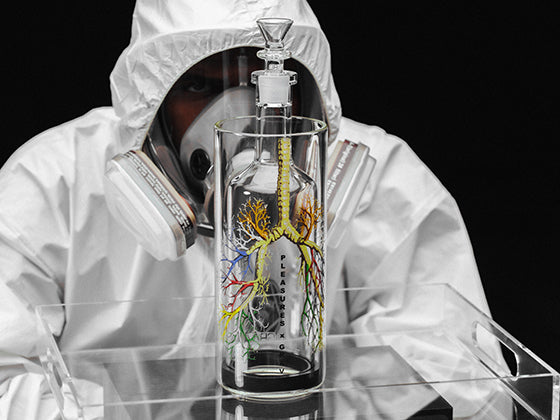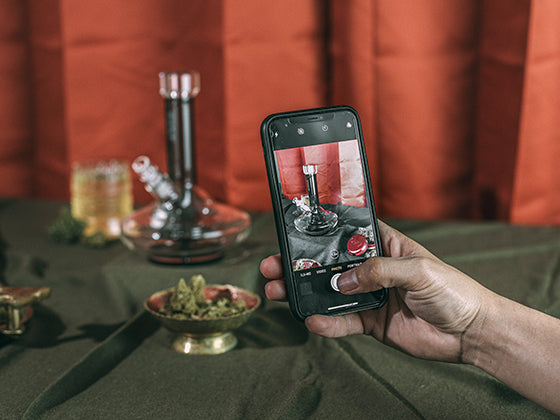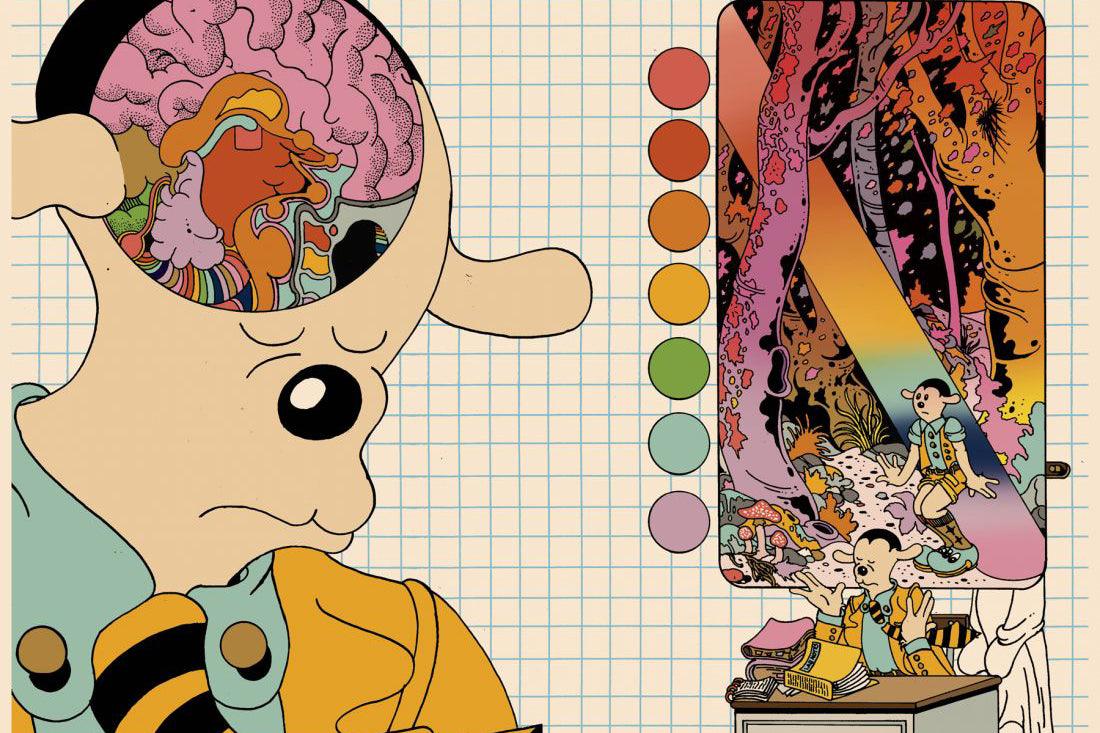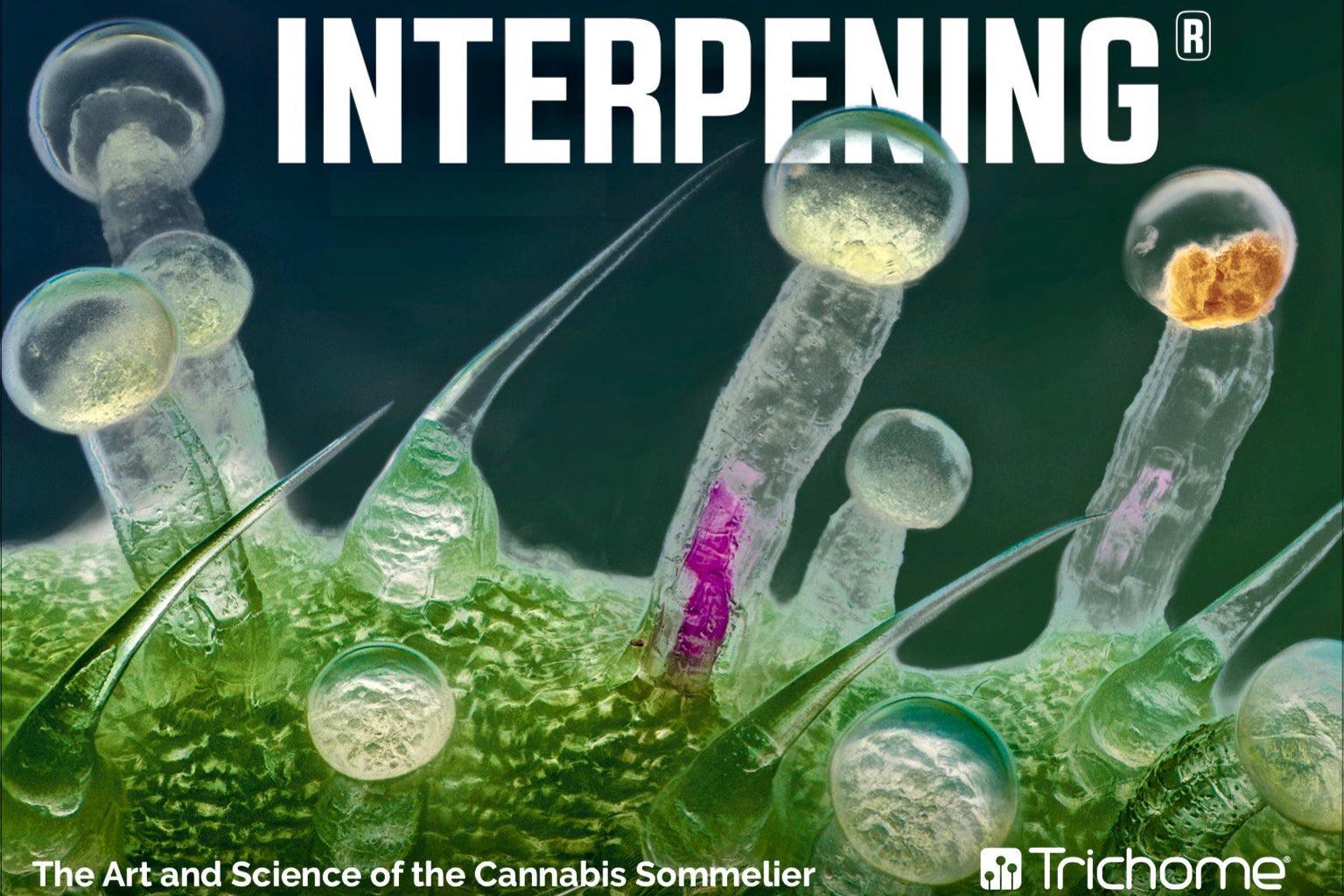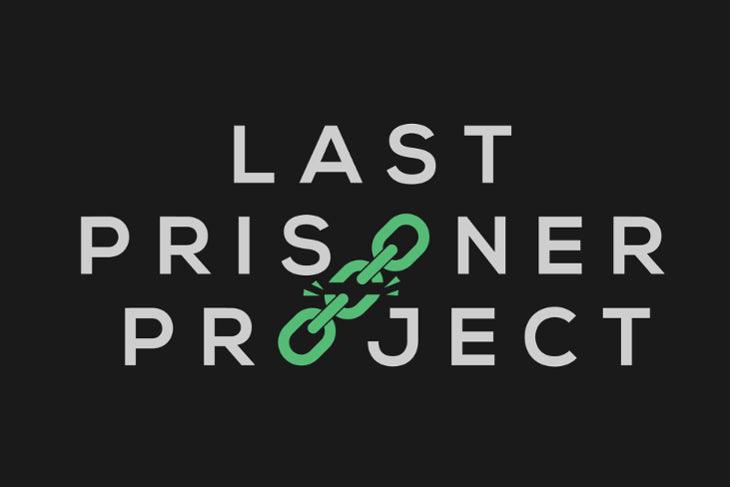Welcome to Part 2 of our GRAV-approved booklist for 4/20 month!
With most of us spending the month at home, we thought it would be a good opportunity to do a little reading. Part 1 of our booklist was all about escapism and entertainment. We selected some of our favorite books either about getting high or to read while high. Or to read sober. No judgment.
For Part 2, we’re focusing on opening our minds. There has been a ton of fascinating research done in the past 50-ish years about psychedelics and their effects on the human brain. If it’s a topic you haven’t learned much about, this is the perfect time. There are also a couple of great resources in here about cannabis, of course.
Read up, so when you can finally see your friends again, you’ll be able to drop some knowledge on them.

Bicycle Day by Brian Blomerth
When you learn that Bicycle Day is a historical account of the first acid trip back in 1943, you may expect it to be a little dry. But Brian Blomerth’s graphic history is anything but. This book is full of whimsical illustrations mixed in with minute facts about Swiss chemist Albert Hofmann and the world’s first foray into the world of LSD.
After taking his dose, Hofmann became anxious and paranoid and asked his assistant to take him home. But wartime restrictions prevented their driving, so the pair had to bike to Hofman’s house. Blomerth’s visuals paint an outlandish and comical picture of the event, with characters portrayed as anthropomorphic dogs in suits. There’s literally nothing not to like about this book.

How to Change Your Mind by Michael Pollan
Michael Pollan’s 2018 dive into the world of psychedelics has introduced microdosing and psychedelic therapy to the mainstream. It’s a fascinating read, starting with the discovery of LSD and the introduction of psilocybin to the developed world. He then continues through the backlash of the 1960s and the eventual banning of LSD in 1970. And finally, he explores the more recent research around psychedelics and their effects on the brain.
We go on the journey with Pollan, from interested skeptic to convert, ready to tout the benefits of psychedelics as mind medicine for the ill and well alike.

The Emperor Wears No Clothes by Jack Herer
Before legal marijuana was even a glint in Willie Nelson’s eye, Jack Herer was exposing just how unreasonable our nation’s drug policy had become. Written during the “Just Say No” 1980s, Herer was one of the first to decry the lies that lead to cannabis’ criminalization.
Herer argues for the medicinal benefits of cannabis. And he claims that hemp could be a renewable alternative to paper, textile, and energy needs throughout the world. Plus it could be grown locally, reducing our dependence on foreign oil and providing a boon to the Republican God, the economy.
You can read the whole book on Jack Herer’s website, for free.

The Doors of Perception by Aldous Huxley
Although he is better known now as a novelist than as a non-fiction writer, Aldous Huxley was also prolific on issues of philosophy, science, and mysticism. One of his best non-fiction works is The Doors of Perception, which describes his experience with a mescaline trip on a Sunday in May 1953.
He visits his garden, peruses books of art, and listens to Mozart, while contemplating the “miracle, moment by moment, of naked existence.” His trip leads him to a greater understanding of an unchanging reality and the perpetual present.
Side note: If you haven’t read Aldous Huxley’s masterpiece, Brave New World, add that one to your list, too. It’s often compared to Orwell’s 1984 but I personally think it’s better, and it was published 17 years prior. It’s disturbingly prescient -- mass production and consumerism are worshipped and constant shallow happiness is the only acceptable mental state. I’m not saying we’re there, but...

When Plants Dream by Daniel Pinchbeck and Sophia Rokhlin
Amazonian peoples have used ayahuasca for hundreds of years, leading them to inner wisdom and greater connection to the spiritual world. And now, it is available to Western audiences through ayahuasca-tourism. What will the effects be?
When Plants Dream shares the history and cultural significance of this plant medicine. What impact is ayahuasca’s popularity having on the outside world? And what does that mean for the cultures and shamans who, up to now, have controlled the use of this ceremonial brew?

The Psychedelic Experience: A Manual Based on the Tibetan Book of the Dead by Timothy Leary
Writer and Harvard psychologist Timothy Leary was, and still remains, a controversial figure in the world of psychedelic research. While no one doubts his intelligence, his allegedly unethical LSD experiments with students in the 1960s led to his dismissal from Harvard. Some say that his irresponsibility is part of why LSD was so villainized in the 1960s, and still is today.
Regardless, his book The Psychedelic Experience, co-written with Ralph Metzner and Richard Alpert (aka Ram Dass), is a fascinating read. It takes inspiration from the Tibetan Book of the Dead, which explores the period between death and your next rebirth. The Psychedelic Experience provides a similar guide for navigating the ego death that can occur during LSD and other psychedelic sessions.

Weed the People: The Future of Legal Marijuana in America by Burce Barcott
I often find that some of the most interesting non-fiction takes us on a journey along with the writer. We get to travel with them as their ideas are challenged and perceptions altered through research and exploration of a subject.
This is the case with Weed the People. The author is not a cannabis-user, but rather a former anti-legalization skeptic who realized he had a major blind spot when it came to the issues of racism, capitalism, and marijuana. It’s a major page-turner that will suck you in, whether you like to smoke or not.
So that’s it!
Two book lists, 20 books.
And this is just a fraction of the great literature out there related to cannabis, psychedelics, and counterculture. What are some of your other favorites? And how are you passing the time during 4/20 month?




